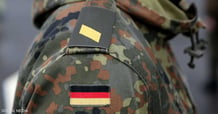
Frankfurt / Main (TEH) – Cologne sports economist Christoph Breuer expects the coronavirus crisis to have an impact on the financial situation of top German athletes – but not very big ones.
“The Olympic and Paralympic athletes, if you will, have nothing to lose anyway and therefore cannot lose so much,” he said in an interview with the German Press Agency.
How hard can the top German athletes be financially affected by the coronavirus crisis?
Christoph Breuer: It can be assumed that the competitive athlete will not be better off after the crisis than before the crisis. But I don’t think they are affected as seriously.
Why?
Breuer: If you will, the Olympic and Paralympic athletes have nothing to lose anyway and therefore cannot lose so much. If you look at their income from competitive sports, there are no bonuses, prize money or entry fees because no events can take place. But even with the well-known athletes that is a small part of the total income.
The crisis will also hit sponsorship funds!
Breuer: I think so. Some sponsors may not survive the crisis or be more constrained. You have to assume that sponsors or advertising partners will be dropped. If they don’t get through the crisis well, everything will be put to the test. We also have the fact that many athletes work extra. The question arises: How do the employers who employ them come through the crisis?
What about funding from Deutsche Sporthilfe, which essentially collects its money from sponsors?
Breuer: The top athletes have received more so-called state sports funding in the past ten years, which has led to more financial stability. Numerous athletes are in the sports companies of the Bundeswehr, at customs or with the federal police or with the Federal Border Guard. In addition, financial support through sports aid has also increased. You can also ask what the financial crisis means for sports aid. That’s why I wouldn’t say that’s for sure. Lufthansa is a premium partner of the foundation, and most of its aircraft are now on the ground. Then Lufthansa may also have to put its sponsorship, advertising, and donation budgets to the test.
There are 4000 athletes in the performance cadres. Could many quit the sport because they can no longer finance it?
Breuer: It can be. Of course, there is speculation. One effect could be that the athletes would earn less on average and would have to practice their sport a little further under the minimum wage conditions. In addition, this raises the question of whether the whole thing is worthwhile at all. Conversely, it can also have a different effect for others, and some say: I now have more time because the employer with whom I am employed and have a half-job will be short-time working in the future. You don’t know all that, that’s speculative now. But I don’t think that there is only one direction. But it won’t get any easier for top athletes either.
Do you see the need for government aid for German sport and its top athletes?
Breuer: The difficulty is that everyone will call for the state. But can the state serve everything at all? In this respect, I would still wait for the situation. I do not think it is out of the question that one might have to readjust this area, so to speak. The question is how to readjust how you see the discussion in professional sports. Waiver of salary plays a major role here. In this regard, however, there is practically no saving potential in most Olympic and Paralympic sports.
Will the expected financial crisis hit the amateur sports sector as hard as it could happen in professional sports?
Breuer: We will not have such an impact on amateur clubs because they have volunteer work as protective functions, as a buffer against financial crises.
If the Tokyo Olympics were postponed for a year. What kind of financial impact could this have on German sport and the optimal promotion of sports aid?
Breuer: The promotion of top-class sports by both Sporthilfe and the federal government will certainly continue. Part of the funds made available this year, such as travel expenses and so on, would not be incurred and could, so to speak, be shifted to the next year. Of course, training and preparation costs would be incurred again in 2021. For this, one would have to provide a similar amount in the federal budget as in this financial year. And the other sponsors would have to stretch accordingly, which would burden their budgets.
PERSONAL: Christoph Breuer is a professor of sports economics at the German Sport University in Cologne. Last year, as a co-author, he published an analysis of the “life situation of top athletes in Germany”.













